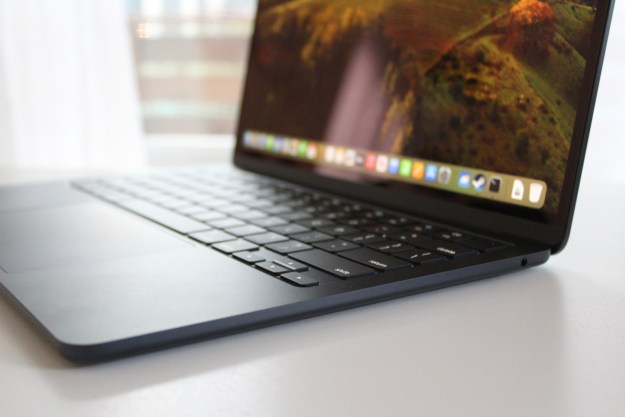Apple’s popular trade-in program will expand to include Mac computers at its retail locations.
You’ll be able to trade-in your Mac computer or MacBook for credit toward a new computer or apply it to a gift card, Bloomberg reported. The program will expand to Mac computers in U.S. retail stores starting June 15 and to Canada stores beginning June 18.
Previously, Mac computers were only able to be traded online and not in stores. Apple’s current trade-in program is for devices like the iPhone, the iPad, and the Apple Watch.

The program allows customers to trade their current devices while offsetting the cost of the latest model. If your current device isn’t eligible, Apple recycles it in an environmentally responsible way.
Digital Trends reached out to Apple to comment on expanding the Mac trade-in program to its retail stores. We will update this story when we hear back.
Apple’s retail stores have only just begun to open back up after being closed in March due to the coronavirus pandemic. There are more than 130 open stores in the U.S. now with curbside and storefront service only.
Apple’s plans for new safety guidelines in its storefronts include limiting store occupancy, performing temperature checks on every visitor, and requiring everyone to put on a face-covering before stepping inside.
Despite its stores closed, Apple was still able to make a profit in the second quarter of 2020. Mac computers only brought in a revenue of $5.6 billion of the total $58.3 billion.
Bloomberg reports that Apple’s expansion to include Mac computers in its retail locations’ trade-in programs could boost overall Mac sales.
This month, Apple also reportedly plans to announce big news for its Mac computers at the Worldwide Developers Conference. The tech giant will reportedly switch its Macs from Intel processors to its own ARM-based chips, a move that’s been rumored for a while.
Editors' Recommendations
- Does your Mac need antivirus software in 2024? We asked the experts
- Don’t download the latest macOS Ventura update just yet
- MacBook Pro 16 vs. MacBook Pro 14: The important differences
- I was wrong about using Stage Manager on Mac
- How Vision Pro tech could come to the Mac




